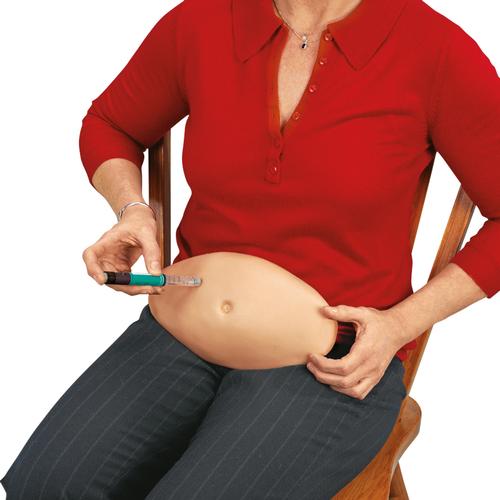Those things You Have to Know About Insulin
Let’s talk insulin.
Mention the “I word” to a reduced carb dieter, or possibly a clean eater, and you may virtually discover their whereabouts turn white as the blood drains from other face in abject horror.
For them, insulin is the big bad guy within the nutrition world.
They reference insulin as “the storage hormone” and think that anywhere of insulin by the body processes will immediately make you lay down new fat cells, gain pounds, and lose any amount of leanness and definition.
Fortunately, it’s not quite the situation.
In fact, while simplifying things regarding nutrition and training can often be beneficial, this is a gross over-simplification in the role of insulin within your body, along with the facts are entirely different.
Faraway from is the dietary devil, insulin is absolutely not even attempt to forget of in any way.
What Insulin Does
The beginning with the insulin worrier’s claim (that insulin can be a storage hormone) is true – one of insulin’s main roles would be to shuttle carbohydrate which you eat throughout the body, and deposit it where it’s needed.
For many people that most the carbs you consume are stored as fat though.
You store glycogen (carbohydrate) inside your liver, your muscle cells plus your fat cells, and it’ll only get shoved into those pesky adipose sites (fat tissue) if the muscles and liver are full.
Additionally, unless you are in a calorie surplus, you merely cannot store excess fat.
View it by doing this –
Insulin is a lot like the employees inside a warehouse.
Calories include the boxes and crates.
You might fill that warehouse fit to burst with workers (insulin) however, if there won’t be any boxes (calories) to stack, those shelves won’t get filled.
And if you’re burning 3,000 calories every day, and eating 2,500 calories (or even 2,999) the body can’t store fat. Regardless if dozens of calories are derived from carbs or sugar, you simply won’t store them, as your body demands them for fuel.
Granted, this couldn’t survive our planet’s healthiest diet, but as far as science is involved, it depends on calories in versus calories out, NOT insulin.
It’s not just Carbs
People fret over carbs obtaining the biggest effect on insulin levels, and exactly how carbohydrate (particularly of the simple/ high-sugar/ high-GI variety) spikes insulin levels, but plenty of other foods raise insulin too.
Whey protein concentrate, as an illustration, is very insulogenic, which enable it to result in a spike, particularly when consumed post workout.

Dairy foods too may relatively large effect due to the natural sugars they contain, and even fats can raise levels of insulin.
Additionally, the insulin effect is drastically lowered when you eat a mixed meal – i.e. one which contains carbs plus protein and/ or fat.
This slows the digestion and also the absorption from the carbs, leading to a significantly lower insulin response. Add fibre into the mix too, along with the raise in insulin is minimal, so even when we had been concerned about it before, the solution is simple – eat balanced, nutrient-dense meals, and you will not need to worry.
Insulin Builds Muscle
Going back to the thought of insulin as being a storage hormone, along with the notion it delivers “stuff” to cells:
Fancy taking a guess at what else it delivers, beside carbohydrate?
It delivers nutrients on your muscle cells.
Therefore, in case you are forever continuing to keep insulin levels low for anxiety about fat gain, it’s highly unlikely you’ll get ripped optimally. It’s because of this that I’d never put clients planning to get ripped making lean gains over a low-carb diet.
No Insulin Can certainly still Equal Fat cell function
Unlike dozens of low-carb diet practitioners once again, it’s possible to store fat when insulin levels are low.
Fat when consumed inside a caloric surplus is in fact changed to excess fat tissue a great deal more readily than carbohydrates are, showing that after again, excess weight or fat reduction relies on calories in versus calories out, not levels of insulin.
Why low-Carb (and Low-Insulin) Diets “Work”
Many folk points for the scientific and anecdotal evidence of low-carb diets being employed as reasoning for keeping levels of insulin low.
I will not argue – a low-carb diet, where insulin release is kept low can certainly work, however, this has little or no related to the hormone itself.
When you cut carbs, you normally cut calories, putting you in a deficit.
Additionally, an average joe will eat more protein plus much more vegetables when going low-carb, so that they feel far fuller and consume less. Plus, protein and fibre both have a high thermic effect, meaning they use up more calories throughout the digestion process.
Main point here: Insulin – Less than Bad In fact
You should not concern yourself with insulin in the event you –
Train hard and frequently
Follow a balanced macronutrient split (i.e. ample protein and fat, and carbs to fit activity levels as well as preference.)
Are relatively lean.
Eat mostly nutrient-dense foods.
Have no difficulties with diabetes.
You can still store fat with low levels of insulin, and you can get rid of fat and create muscle when insulin exists.
Looking at insulin in isolation as either “good” or “bad” is actually a prime example of missing the forest for your tress, so calm down, and let insulin do its thing whilst you focus on the main issue.
For more details about ozempic online UK please visit internet page: read here.
